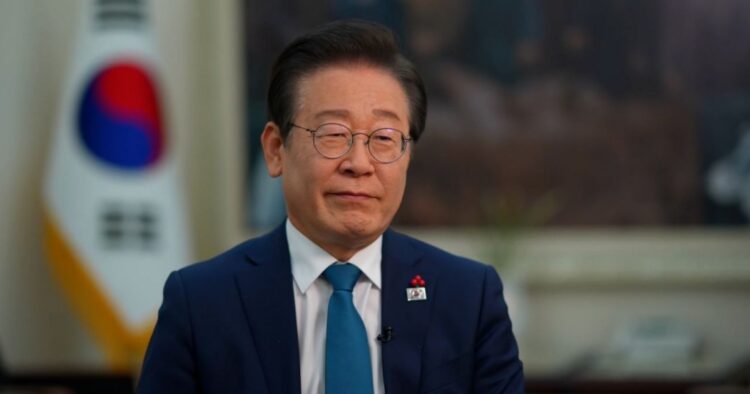KEY POINTS
- Lee Jae-Myung’s possible win in South Korea raises concerns about tensions with Japan.
- India’s leadership can play a key role in uniting Asian democracies for a stable Indo-Pacific.
The presidential race in South Korea is heating up, and many experts are watching closely. Lee Jae-Myung, a leading figure from the Democratic Party, is gaining strong support. Some people are worried that if Lee wins, the relationship between South Korea and Japan might become tense. This has raised concerns around the world, especially because both countries are important partners for peace and security in Asia. However, when we look deeper, it becomes clear that these fears are not very serious. India, with its strong ties to both South Korea and Japan, must take this opportunity to help keep the two close, for the betterment of Asia and the world.
A Changing Leadership in South Korea
Lee Jae-Myung belongs to South Korea’s Democratic Party, which has in the past tried to balance relations between China and the United States. Historically, the party has also raised sensitive issues, like the sufferings of Koreans under Japanese colonial rule. If Lee brings up these matters strongly, Japan’s ruling Liberal Democratic Party may not respond positively.
At the same time, there has been a change in leadership in the United States. Former President Joe Biden had played a big role in building strong ties between South Korea, Japan, and America through the Camp David Agreement of 2023. Now, with Donald Trump likely returning to the White House, many fear that American support for the South Korea-Japan partnership could weaken, as Trump’s earlier term was more transactional in nature.
There are genuine concerns that Lee’s leadership might bring historical issues back into the spotlight and disturb the growing friendship between South Korea and Japan. In the past, tensions over colonial history have strained the relationship between these two important Asian countries. Without strong U.S. leadership like Biden’s, some experts believe the bond between Seoul and Tokyo could loosen, at a time when cooperation is needed to face threats like North Korea’s growing military power and China’s assertiveness.
Why These Concerns Are Limited
Despite these worries, the real situation is different. Today, South Korea’s foreign policy community, across all major parties, largely agrees on one thing: to continue growing politically, economically, and technologically, South Korea must maintain strong partnerships. Even if Lee Jae-Myung raises some historical issues, he is unlikely to break the overall consensus.
Moreover, President Trump will also have strategic reasons to push South Korea and Japan to stay united. North Korea’s growing nuclear capabilities are a direct threat not only to Asia but also to the United States itself. Recently, top naval chiefs from the US, South Korea, and Japan even held a teleconference to improve cooperation against such threats. This shows that the spirit of working together remains strong.
South Korea and Japan are too deeply linked to walk away from each other easily. South Korea is one of the largest sources of tourists to Japan. Japan’s tourism industry, worth over $71 billion, greatly benefits from South Korean travelers.
They are also discussing a South Korea-Japan-China Free Trade Agreement since 2013, which could become even more important if the United States imposes new tariffs on Asian economies.
Strategically, both countries understand the danger posed by China’s aggressive moves. In 2017, when South Korea installed a US missile defense system, China retaliated harshly, causing losses of nearly $8 billion to South Korea’s tourism industry. These painful memories ensure that Seoul knows the importance of staying close to friendly nations like Japan.
In this situation, India can play a very important role. India has long enjoyed strong, friendly relations with both South Korea and Japan. New Delhi must continue to encourage Seoul and Tokyo to work together. India’s status as a major democracy and an important economic power makes it a trusted friend for both nations.
By promoting unity between South Korea and Japan, India can help create a coalition of Asian democracies. This coalition would stand for a “free, open, inclusive, and peaceful Indo-Pacific”, a goal India has always supported. Such unity is crucial to stop the aggressive designs of authoritarian nations like China in the region.

















Comments